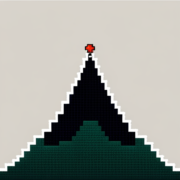
Rutgers University implements an agrivoltaics project at its farm, studying the interaction between livestock and solar installations, while LifeLine Animal Project celebrates the installation of a new solar system, resulting in cost savings for the organization and highlighting the benefits of renewable energy in supporting community initiatives.
At a glance
- Rutgers University is implementing agrivoltaics project with Sunzaun vertical solar system.
- The project aims to study the interaction between livestock and solar installations.
- Design considerations include minimizing obstructions to farming equipment.
- Collaboration with NJBPU’s Dual-Use Solar Energy Pilot Program and the New Jersey Department of Agriculture
- LifeLine Animal Project celebrates the installation of a 200-kW solar system for cost savings and animal welfare services.
The details
Rutgers University has embarked on an innovative agrivoltaics project at its farm on Cook campus, selecting the Sunzaun vertical solar system for implementation.
This project, situated at Rutgers University-New Brunswick’s farm, serves multiple purposes as a production farm, research facility, and teaching operation.
Agrivoltaics, a unique concept that combines agriculture with solar energy generation, is at the core of this initiative.
The project’s primary objective
is to study the interaction between livestock and solar installations, with a specific focus on how animals interact within the agrivoltaics system.
Advanced Solar Products, a reputable solar EPC contractor, was responsible for constructing the project using Sunzaun’s vertical racking system.
The system boasts a total output capacity of 170 kWDC and comprises 18 rows of 21 ZnShine 450-W bifacial panels.
Key design considerations for this project were to minimize obstructions to farming equipment and ensure seamless operations on the farm.
Additionally, the project will investigate the impacts of the agrivoltaics system on forage production and animal grazing, contributing valuable insights to the field.
Moreover, this project aligns with the Dual-Use Solar Energy Pilot Program administered by the New Jersey Board of Public Utilities (NJBPU), aiming to explore the feasibility and benefits of agrivoltaics.
This collaboration involves the New Jersey Department of Agriculture and the Rutgers Agrivoltaics Program, highlighting the importance of research and innovation in sustainable energy practices.
In a separate development
LifeLine Animal Project, in collaboration with RE-volv and its Georgia Tech Solar Ambassador chapter, recently celebrated the installation of a new 200-kW solar system.
This initiative is expected to result in substantial cost savings for LifeLine, amounting to $1.6 million over the system’s lifespan.
These savings will be reinvested in animal welfare services, furthering the organization’s mission.
The installation was commemorated with a solar ribbon-cutting ceremony and a solar-themed pet adoption day, underscoring the significance of renewable energy in supporting community initiatives.
Tracy Thompson, shelter director at LifeLine Animal Project, expressed enthusiasm for the solar power initiative and emphasized its positive impact on the organization’s operations.
RE-volv’s solar financing model has proven beneficial for over 70 nonprofits, including LifeLine, enabling them to save up to 15% per month on their electrical bills.
The Solar Ambassador program, led by fellows from Georgia Institute of Technology, plays a crucial role in driving outreach efforts for such projects and offers valuable real-world experience in solar outreach and development.
Furthermore, a special offer has been launched for Atlanta residents to adopt solar energy and support animal welfare simultaneously.
Valid until May 31, 2024, this offer includes a donation to LifeLine on behalf of participating residents.
The ‘solar seeding effect’ theory, as highlighted by Andreas Karelas, Founder and CEO of RE-volv, suggests that one non-residential solar installation can pave the way for 80 residential solar installations in the next 5 years, illustrating the cascading benefits of solar energy adoption.
Overall, these initiatives underscore the growing importance of sustainable energy practices and community collaborations, showcasing the positive impact of solar energy in both agricultural and nonprofit sectors.
Article X-ray
Sources
Here are all the sources used to create this article:
Facts attribution
This section links each of the article’s facts back to its original source.
If you suspect false information in the article, you can use this section to investigate where it came from.
| solarpowerworldonline.com |
|---|
| – Rutgers University has chosen the Sunzaun vertical solar system for an agrivoltaics project at its farm on Cook campus – The farm at Rutgers University-New Brunswick serves as a production farm, research facility, and teaching operation – Agrivoltaics involves using land for both agriculture and solar energy generation – The project aims to research livestock interaction with solar installations – The project was constructed by solar EPC contractor Advanced Solar Products using Sunzaun’s vertical racking system – The project will contribute to the Dual-Use Solar Energy Pilot Program administered by the NJBPU – The system has a total output capacity of 170 kWDC and consists of 18 rows of 21 ZnShine 450-W bifacial panels – The system is designed to minimize obstructions for farming equipment – The project will study the impacts of the agrivoltaics system on forage production and animal grazing – The project will support the Dual-Use Solar Energy Pilot Program administered by the NJBPU – The program aims to explore the feasibility and benefits of agrivoltaics in collaboration with the New Jersey Department of Agriculture and the Rutgers Agrivoltaics Program. |
| solarpowerworldonline.com |
|---|
| – LifeLine Animal Project, in partnership with RE-volv and its Georgia Tech Solar Ambassador chapter, celebrated the installation of a new 200-kW solar system – LifeLine will save $1.6 million on electrical bills over the life of the system, which will be re-invested in animal welfare services – The celebration included a solar ribbon-cutting ceremony and a solar-themed pet adoption day – Tracy Thompson, shelter director with LifeLine Animal Project, expressed excitement about the solar power initiative – Over 70 nonprofits, including LifeLine, are saving up to 15% per month on their electrical bills through RE-volv’s solar financing model – RE-volv Solar Ambassador fellows from Georgia Institute of Technology led initial outreach efforts for the project – The Solar Ambassador program provides real-world experience in solar outreach and development – A special offer for Atlanta residents to go solar and support animal welfare was launched at the event – The offer is valid through May 31, 2024, and includes a donation to LifeLine on residents’ behalf – The ‘solar seeding effect’ suggests that one non-residential solar installation can lead to 80 residential solar installations in the next 5 years – Andreas Karelas, Founder and CEO of RE-volv, highlighted solar energy as an accessible option for residents to save money and create a greener community. |












